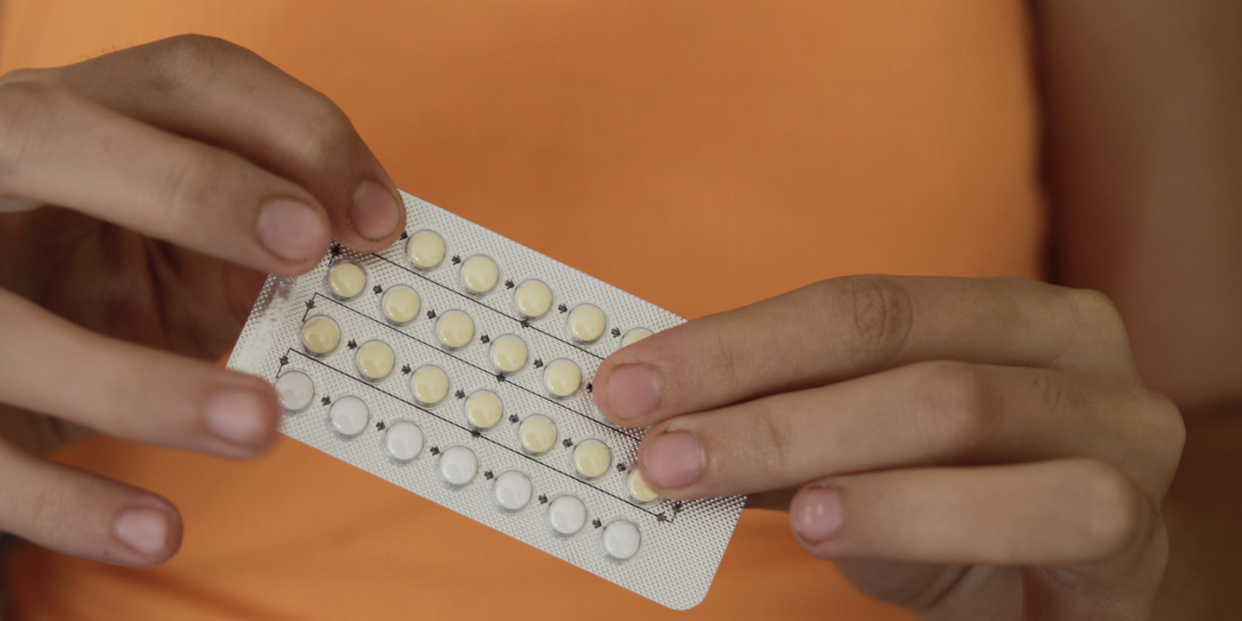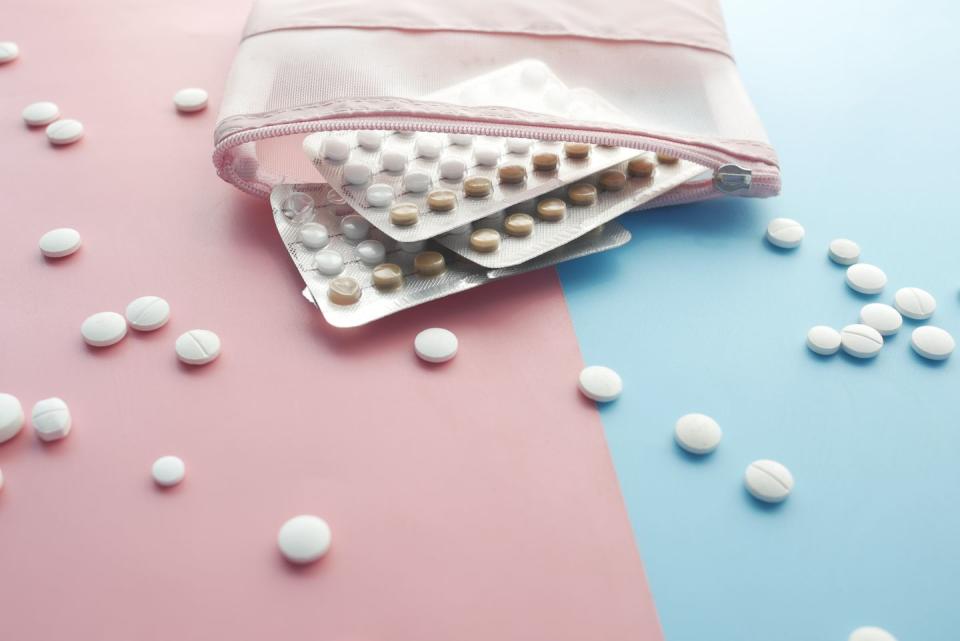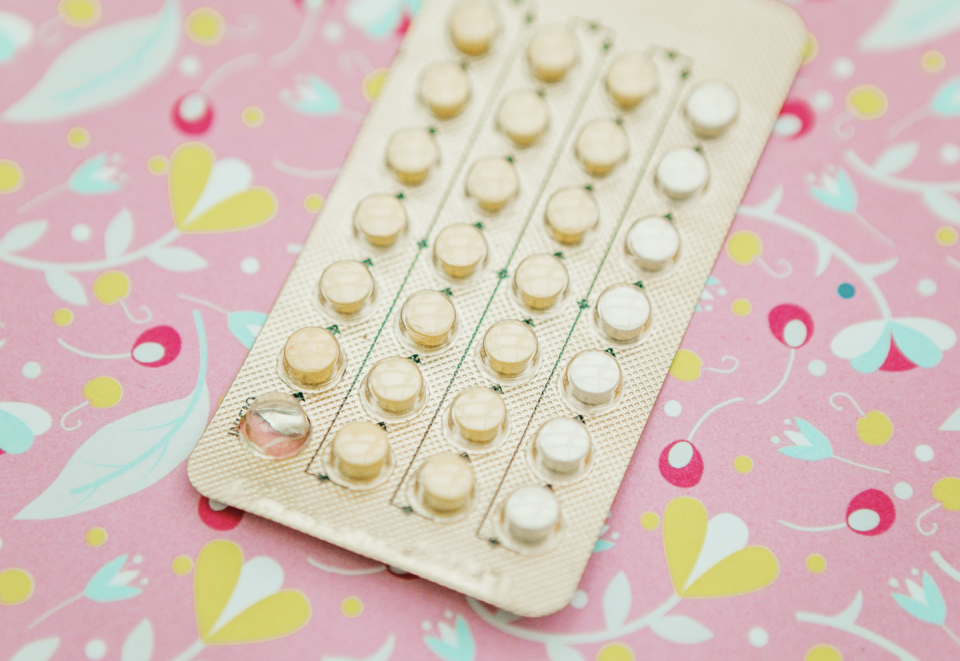This is how long it takes for the pill to work, according to a doctor

For many women, taking the contraceptive pill is an easy and effective way to prevent getting pregnant. It's physically non-invasive, and all you have to do is remember to take the tablet at more or less the same time every day. Then, it's 99% guaranteed you won't get pregnant - a solid option for those of us not looking to start a family any time soon.
Wondering what happens if you miss a pill? We've got a complete guide for you.
But if you're considering the pill as your contraception of choice (there's thought to be 3.1 million of us opting for this, after all) it's definitely worth asking: how long does it actually take before the hormonal effects of the pill kick in when you start taking it?
The pill promises to prevent the release of your egg and therefore your chance of fertilisation. But is there a time frame, after you start taking the pill, where the egg release continues to happen? And what are the chances of pregnancy in that time?
We've spoken to two doctors to get the verdict on when your contraceptive pill actually begins to protect you against pregnancy.
Find out exactly how long you'll need to wait until you find yourself in the condom-free safe-zone (where pregnancy is concerned that is, obviously unprotected sex isn't the wisest move if you're not certain about your partner's STI status).
How long does it take for the pill to work?
According to Dr Dianni Dai, GP at Pulse Light Clinic, it depends when you start taking your contraceptive pill in relation to your cycle. "If you start taking the combination pill on the first day of your period, you’ll be protected against pregnancy right away," she explains.
However, if you start your pill pack after your period has started, you’ll need to wait seven days before having unprotected sex. "If you have sex during this time, be sure to use a condom for at least the first week as you are not protected," she continues.
Dr Houda Ounnas, GP at 25 Harley Street, agrees, further adding that how long it takes for a contraceptive pill to work depends on the type of the pill you are taking, too.
The combined pill
If you are taking the combined oral contraceptive pill – the one most commonly prescribed – then listen up. "The combined pill takes longer to work and only starts to be effective after seven days of continuous use, starting on day one of your next period," Dr Ounnas explains.
According to the NHS website, this seven day allowance for it to work only applies if you start taking the pill on day six or later of your menstrual cycle. Your menstrual cycle begins on the first day of your period.
If you start the combined pill between days one to five of your period, the NHS advises that "you will still be protected from pregnancy straight away, unless you have a short menstrual cycle (your period is every 23 days or less)". So, if you have a short menstrual cycle, or you start taking it any later in your cycle than day five, condoms it is.

The mini pill
If you are taking the mini pill, the rules vary slightly, Dr Ounnas explains. "You only need 48 hours of continuous use of the mini pill, not seven days, regardless of where you are in the cycle." You also don’t need to wait for your next period to start.
That means that after only two days of taking this pill, it's already in your system and registered a reliable form of contraception.
So what's the catch? "It's important to note that if you miss this pill, or are late in taking it, you don't have 24 hours to catch up," she explains. "Depending on the particular brand, the window of time during which you need to take it varies from three to twelve hours."
The expert's advice? Always check the individual brands’ recommendation. "If you miss one of these pills, you will need 48 hours of continuous use for it to become effective again, the same as when you first started it. There is no variation according to the cycle." Got that? Be sure to be mindful when taking your pill.
Why aren't you always protected from the day you take the pill?
Because, in short, it can take up to seven days for the pill to become effective and for your body to register the protection. "During this time, you should use another form of birth control," explains Dr Dianni.
It's good to have a stack of condoms on standby if you do want to be sexually active during this time.
How effective is the pill?
The pill is over 99% effective at preventing pregnancy, both doctors confirm. "This means that fewer than one in 100 who use the combined pill as contraception will get pregnant each year," explains Dr Dianni.
It's worth mentioning that this is only the case if the pill is taken effectively and consistently. Having said that, it is also true that some forms of birth control work better than others.
The kinds of birth control that work the best to prevent pregnancy are:
The implant
IUDs, like the coil
They're also the most convenient to use, and the most foolproof, Dr Dianni shares.
That's not to say other birth control methods (such as the pill, ring, patch, and shot) aren't also really good at preventing pregnancy – they are. But only if you use them perfectly.
"But people aren't perfect, and these methods are easier to mess up than implants and IUDs," explains Dr Dianni. So really, it's a personal decision that would benefit from being made after having had a chat with your GP or your local sexual health clinic.

So, pills don't provide instant protection?
Many people assume that the contraceptive pill provides instant protection against pregnancy, but as the experts have explained above, that's not true. "That is certainly not the case with most hormonal-based pills," explains Dr Dianni. The only exception, she explains, is the copper IUD. "This acts as spermicide and therefore provides protection straight away upon insertion."
Another important thing to note here: whilst birth control pills do prevent you against getting pregnant (seven days after taking), they do not protect against STIs. "It is wrong to assume ‘safe sex’ can be achieved with birth control alone. Condoms are important tools for preventing STI transmission," adds Dr Dianni.
Am I protected against pregnancy if I miss one pill?
It depends on the type of pill you're taking, says the experts, along with how long you've been taking it for. "If you are late in taking the combined pill or you forget altogether, then you have 24 hours to catch up and take it before the next one is due," says Ashfaq Khan, consultant obstetrician and gynaecologist. "If it’s been longer than 24 hours, then you need to count it as a missed pill if you have had sex in that time, and seek emergency contraception.
"As a rule of thumb, the first seven days of a cycle is usually considered the worst time to miss a pill, if you are sexually active. If you don’t need emergency contraception, you can continue having sex as normal but you will need alternative contraception such as condoms, until you have managed to take your pill continuously for 7 days."
Khan caveats that things are different if you're on the mini-pill.
"After only two days of taking this pill, it’s already in your system, although you need to take it roughly within 3 to 12 hours of the same time each day for it to be effective, depending on the brand," he said. "This means that if you are late in taking it or miss it altogether, you don’t have the added safety net of the 24 hours to catch up. If you miss one of these pills, you will need 48 hours of continuous use for it to become effective again."
If you have missed two or more pills anywhere in the pack, or if you've started a new pack two or more days late (48 hours or more), your protection against pregnancy may be affected.
If you find yourself in this situation, here's what you should do:
Take a pill as soon as you remember – only take one, even if you have failed to take more than one
Take the next pill at the usual time – this may mean taking two pills on the same day
Carry on taking your remaining pills each day at the usual time
Use extra contraception such as condoms for the next two days (48 hours) after you remember to take your missed pill, or do not have sex
If you have had unprotected sex during the two days after you miss your pill, you may need emergency contraception.
Dr Dianni's advice? "Condoms are your safer sex superhero: they’re the only way to get protection from both pregnancy and STDs during vaginal sex."
This article is not intended to be a substitute for professional medical advice or diagnosis. Always seek the advice of your physician or other qualified health provider with any questions you may have regarding a medical condition.
You Might Also Like


